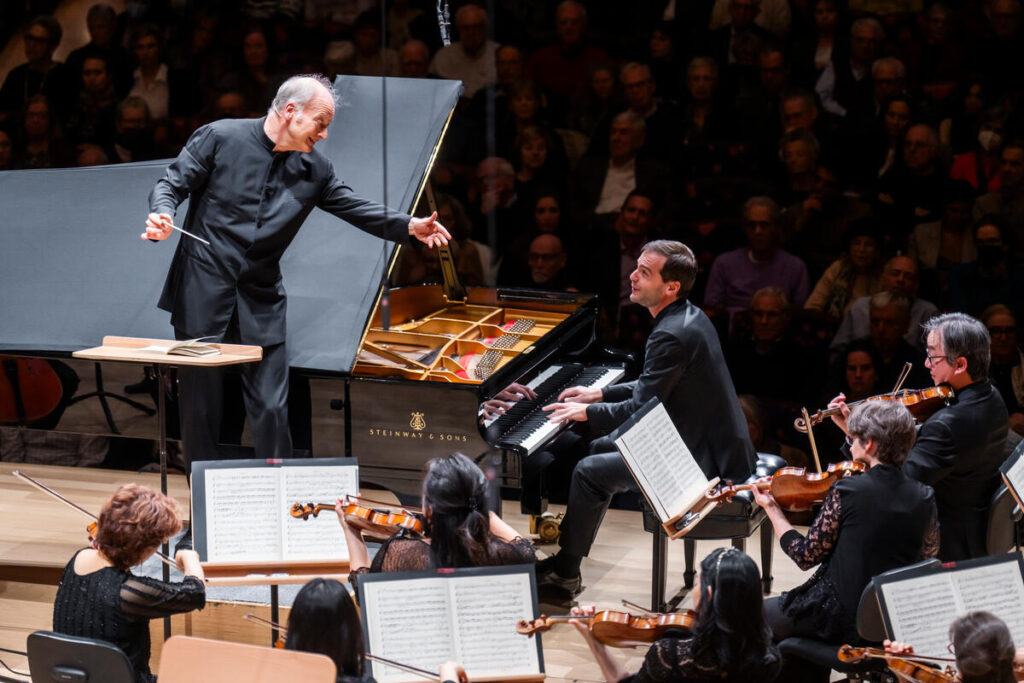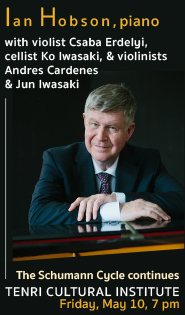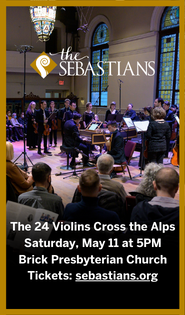Noseda and friends join Philharmonic for auspicious evening of Mozart and Mahler

Guests are in the house this week at the New York Philharmonic. Visiting conductor Gianandrea Noseda is leading a subscription program of Mozart and Mahler that features soprano Golda Schultz and pianist Francesco Piemontesi, who is making his debut with the orchestra.
The program has the familiar and the unusual. The former is made up of Mozart’s Piano Concerto No. 25 and Mahler’s Symphony No. 4, the latter Mozart’s concert aria Ch’io mi scordi di te? … Non temer, amato bene, which opened Wednesday night’s concert in David Geffen Hall. It was emblematic of a night that was fine overall, and that promised much more that might possibly be achieved.
The aria is one of the dozens of such discrete, dramatic vocal pieces as Mozart wrote. Some were meant to be inserted inside other operas, but all can stand alone as concert pieces. Ch’io mi scordi di te?is its own dramatic set piece, and also something more; categorized as “Scene and Rondo,” it opens with a recitative, moves into an aria, then brings in the piano in a role that mixes solos, ensemble playing, and accompaniment.
Yes, there are a lot of moving parts and directions, too many to be fully successful. In the performance, each discrete part was fine, Schultz’s tone was bright and each note rounded in a way that felt substantial without being heavy. The orchestra’s sound was transparent, string articulation was excellent, and Piemontesi’s playing was peppy and considerate to the disparate demands of the part. But everyone seemed to be stepping carefully around each other trying to figure out how best to fit together. It was like drivers in parallel lanes amicably deferring to each other.
Piemontesi seemed more comfortable, and showed in the concerto that he is a fresh and superb Mozart player from whom one wants to hear much more. His touch and phrasing in the music were so fine that one felt this, after hearing different performances through the years, was how it was supposed to sound. There was a little sparkle of velocity to each note, inside clear articulation, which itself was coated with an even and lustrous legato.
His pace in each movement was excellent, with the feeling that each note had perfect timing and space around it. His expressive mode was marvelous too, extroverted and delightful, sensitive in the Andante, absolutely without manner. One rarely hears classical music played like this, with the straightforward sense that it’s just music, without “high art” cultural baggage, and that Mozart can be for everyone.
That was reinforced by his choice of first-movement cadenza, the brilliant one written by Friedrich Gulda. Full of the same delight in the pure workings of harmony and melody, Piemontesi teased out the Mozartian cheek at the end, where Gulda speculated that there were fragments of “Le Marseilles” inside the score. It was scintillating, and Piemontesi’s encore was also fantastic. He played Variation XI from the third movement of Mozart Piano Sonata No. 6 in D major, K.284, keeping everything as simple and glowing as possible.
The Mahler Four performance approached greatness, but Noseda didn’t quite sustain it all the way through. It was exciting to just hear Mahler live again, his music having been strangely absent from the scene the last few years. The first two movements were exceptional. The orchestral playing was exacting and full of details and the string section as a whole played with a weight of expression far beyond the usual. There was a nice dramatic touch in having Schultz come out onto stage as the coda to the second movement was wrapping up.
This didn’t hold to the same level in the “Ruhevoll” slow movement. The tempo was serene (Noseda’s tempos and modulations were ideal throughout) but by this point expectations had risen and the strings didn’t have the ideal floating quality, with a touch too much mass and grain. That reduced the contrast between the darker, minor key section and, crucially, the “gates of Heaven” climax. This wasn’t bad—though the final chord in the movement was off-balance and a little sour—just less than the excellence of the first two movements.
Schulz sang with great artistry in the final movement, effervescent to start with a little more flutter to her vibrato than in the Mozart. In the reprise of the opening phrase, on “There is no music on earth / That can compare to ours,” she moved from a simple style to one a touch richer and more complex, which felt just right.
This program will be repeated 2 p.m. Friday and 8 p.m. Saturday. nyphil.org










Posted Feb 07, 2024 at 8:29 am by PLK
Really wonderful review–made me wish I had been there.
I was at Carnegie listening to Mehta, Bronfman and the Munich Philharmonic–that was good too! But Mahler played by the NY Phil is worth its weight in gold.